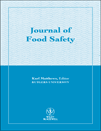
JOURNAL OF FOOD SAFETY
Scope & Guideline
Advancing food safety through rigorous research.
Introduction
Aims and Scopes
- Microbial Safety and Pathogen Detection:
Research focused on the detection, characterization, and control of foodborne pathogens, including innovative detection methods such as PCR, ELISA, and biosensors. - Food Preservation Techniques:
Studies on various preservation methods, including chemical treatments, packaging innovations, and natural preservatives to enhance food safety and prolong shelf life. - Food Quality and Safety Assessment:
Evaluation of food products for safety through microbial load assessments, mycotoxin detection, and the impact of processing on food quality. - Risk Assessment and Management:
Research on risk assessment methodologies and management strategies concerning food safety hazards and consumer health. - Innovations in Food Technology:
Exploration of novel technologies such as nanotechnology, plasma treatments, and advanced imaging techniques for improving food safety. - Consumer Awareness and Behavior:
Studies examining consumer knowledge, attitudes, and practices related to food safety and their implications for public health.
Trending and Emerging
- Nanotechnology in Food Safety:
Emerging research on the application of nanotechnology for pathogen detection and food preservation, highlighting its potential to revolutionize food safety practices. - Sustainable and Green Food Practices:
A notable shift towards sustainable practices, including the use of plant-based preservatives and eco-friendly packaging solutions to promote food safety. - Advanced Detection Methods:
Increased focus on rapid detection techniques, such as biosensors and molecular methods, to improve the speed and accuracy of pathogen identification. - Impact of Climate Change on Food Safety:
Research addressing the implications of climate change on food safety, particularly how environmental changes affect microbial growth and contamination. - Consumer-Centric Food Safety Education:
Growing emphasis on understanding consumer behavior and education regarding food safety practices, aiming to empower consumers in making safe food choices.
Declining or Waning
- Traditional Chemical Preservatives:
Research on conventional chemical preservatives has decreased as the focus shifts towards natural and innovative preservation methods. - Basic Microbial Culture Techniques:
The reliance on traditional microbial culture methods for pathogen detection is declining due to the rise of molecular and rapid detection techniques. - General Food Safety Knowledge Reviews:
While general reviews on food safety knowledge were once prevalent, there is now more emphasis on specific studies and targeted interventions. - Animal Welfare and Safety Intersections:
Research examining the intersections of animal welfare and food safety has decreased, possibly overshadowed by more pressing food safety concerns.
Similar Journals
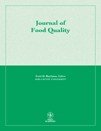
JOURNAL OF FOOD QUALITY
Elevating Food Science through Quality ResearchThe Journal of Food Quality, an esteemed publication under Wiley-Hindawi, stands as a vital resource in the dynamic field of Food Science, established since 1977 and operating under an Open Access model since 2017. With its seat in the United Kingdom, this journal focuses on delivering high-quality research and insights pertaining to food safety, risk management, and quality assurance, reflected in its impressive Q2 ranking in both Food Science and Safety, Risk, Reliability and Quality categories in 2023. Researchers and professionals will find the journal’s contributions indispensable, particularly given its Scopus rankings that place it in the top echelons of its fields, highlighting its impact and relevance. By fostering an environment of knowledge sharing, the Journal of Food Quality not only enhances academic dialogue but also supports innovation and best practices in food research and industry applications.
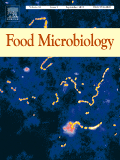
FOOD MICROBIOLOGY
Exploring the unseen world of food microbiology.FOOD MICROBIOLOGY is a premier journal, published by Academic Press Ltd - Elsevier Science Ltd, dedicated to advancing the field of food science and microbiology. With an impressive impact factor and recognition as a Q1 journal in Food Science and a Q2 journal in Microbiology, it holds a significant position in the scientific community, emphasizing research that explores microbial phenomena in food products. Established in 1984, the journal continues to thrive with converged coverage until 2025, making it an essential resource for researchers, professionals, and students aiming to deepen their understanding of food-related microbiological issues. While it operates under traditional access options, the journal is highly regarded for its rigorous peer-review process and impactful contributions to agricultural and biological sciences, ranking #26 in Food Science and #22 in Microbiology according to Scopus. Researchers are encouraged to submit their findings that impact food safety, quality, and preservation, fostering a collaborative environment that generates knowledge pivotal for the food industry and public health.

JOURNAL OF FOOD SCIENCE AND TECHNOLOGY-MYSORE
Unlocking the Science Behind Food TechnologyJOURNAL OF FOOD SCIENCE AND TECHNOLOGY-MYSORE, published by SPRINGER INDIA, is a distinguished peer-reviewed journal that has been contributing to the ever-evolving field of food science since its inception in 1974. With an ISSN of 0022-1155 and E-ISSN 0975-8402, this journal holds a commendable position in the Q2 category for Food Science, as per the 2023 metrics, and ranks #58 out of 389 in Scopus's Agricultural and Biological Sciences sector, achieving an impressive 85th percentile. The journal publishes high-quality research articles, reviews, and case studies that cover a wide array of topics, from food preservation to innovative technologies in food processing. Although it is not an open-access journal, it endeavors to disseminate essential knowledge and research strategies that advance food science and benefit both industry professionals and academia. The geographical reach of the journal, alongside its rigorous editorial standards, solidifies its stature as a pivotal resource for researchers, professionals, and students dedicated to the enhancement of food science practices and technologies.

Journal of Food Measurement and Characterization
Exploring New Frontiers in Food AnalysisJournal of Food Measurement and Characterization, published by SPRINGER, is a pivotal resource for researchers and professionals in the fields of Chemical Engineering, Food Science, and Industrial and Manufacturing Engineering. With an ISSN of 2193-4126 and an E-ISSN of 2193-4134, this esteemed journal has carved its niche since its inception in 2012, continuing to contribute valuable insights until 2024. Ranking in the Q2 category across multiple disciplines, including Safety, Risk, Reliability, and Quality, it reflects a strong commitment to advancing knowledge and innovation within these critical areas. Although it operates under a subscription model, the journal provides an array of access options for institutions and researchers keen to explore novel methodologies and analyses in food measurement and characterization. The journal’s rigorous peer-review process ensures the dissemination of high-quality research, making it an essential platform for advancing the science of food and related industries.
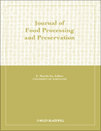
JOURNAL OF FOOD PROCESSING AND PRESERVATION
Pioneering Research for Sustainable Food PracticesJOURNAL OF FOOD PROCESSING AND PRESERVATION, published by Wiley-Hindawi, stands as a vital resource within the fields of Food Science, Chemical Engineering, and Chemistry. With an ISSN of 0145-8892 and an E-ISSN of 1745-4549, the journal has been a beacon of knowledge since its inception in 1977, continuing to provide valuable insights to the research community until 2024. Recognized for its quality, it holds a noteworthy Q2 ranking in 2023 across multiple categories, including Food Science and Chemical Engineering, indicating its influential contribution to the academic discourse. Although it offers no open access, the journal remains a crucial platform for disseminating groundbreaking research and innovative methodologies in food processing and preservation. Researchers, professionals, and students can significantly benefit from its comprehensive reviews, original research articles, and case studies, aimed at advancing knowledge and practices in food technology. By bridging the gap between theoretical advancements and practical applications, the JOURNAL OF FOOD PROCESSING AND PRESERVATION plays an essential role in addressing global food safety, sustainability, and quality challenges.

International Food Research Journal
Bridging Disciplines in the World of Food ResearchThe International Food Research Journal, published by UNIV PUTRA MALAYSIA PRESS, serves as a pivotal platform for disseminating innovative research within the field of food science. With an ISSN of 1985-4668 and an E-ISSN of 2231-7546, the journal has successfully established its presence since its inception in 2007, converging its findings through 2024. This esteemed journal holds a Q3 ranking in Food Science, illustrating its valuable contributions to the field as demonstrated by its Scopus rank of 276 out of 389, placing it in the 29th percentile among its peers in Agricultural and Biological Sciences. Although it operates under a traditional publishing model, its academic integrity and focus on high-quality research ensure that it remains a vital resource for researchers, professionals, and students eager to explore advances in food technology, nutrition, and safety. By encouraging interdisciplinary collaboration and critical dialogue, the International Food Research Journal plays an essential role in shaping the future of food science research.

Food Science of Animal Resources
Bridging Research and Practice in Food Science of Animal ResourcesFood Science of Animal Resources is a prestigious, peer-reviewed journal published by the Korean Society of Food Science and Animal Resources, serving as a vital platform for disseminating advanced research in the fields of Animal Science and Food Science. Since its inception in 2018, the journal has quickly established itself with an impressive Q1 ranking in both categories for 2023, indicating its relevance and influence in the academic community—evident by its ranking of #23 in Animal Science and Zoology and #78 in Food Science among thousands of journals. Operating on an Open Access model since 2019, it enables unrestricted access to cutting-edge research for a global audience, facilitating collaboration and innovation. Its commitment to quality and rigor makes it an essential resource for researchers, professionals, and students dedicated to advancing knowledge in food safety, nutrition, and sustainable practices within the animal resource sector. Set against the vibrant backdrop of South Korea, the journal aims to bridge gaps in knowledge and foster communication among scholars and practitioners worldwide.
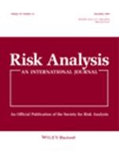
RISK ANALYSIS
Pioneering Research at the Intersection of Risk and SafetyRISK ANALYSIS is a premier journal published by Wiley, focusing on the critical intersection of safety, risk, reliability, and quality within the fields of engineering and physiology. With a strong standing reflected in its Q1 category ranking in Safety, Risk, Reliability and Quality and Q2 in Physiology (medical), this journal is a vital resource for researchers, professionals, and students eager to stay informed on the latest methodologies, theories, and applications surrounding risk assessment and management. Since its inception in 1981, RISK ANALYSIS has been instrumental in shaping the discourse in its fields, garnering a robust reputation verified by its high rankings on Scopus, where it is positioned in the 85th percentile in Safety and the 77th percentile in Medicine. Though it does not currently offer Open Access options, the journal remains essential for those committed to advancing their understanding of risks associated with complex systems. For more insights, RISK ANALYSIS is available to readers throughout its converged years extending to 2024, solidifying its role as a foundational journal for impactful research.
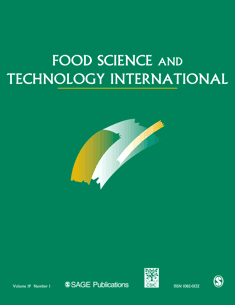
FOOD SCIENCE AND TECHNOLOGY INTERNATIONAL
Connecting professionals to the latest in food science advancements.FOOD SCIENCE AND TECHNOLOGY INTERNATIONAL, published by SAGE Publications Ltd, is a premier journal in the fields of food science and technology, serving as a crucial platform for the dissemination of innovative research and practical applications from 1995 through to 2024. With an impact factor reflecting its significant standing—ranking in the Q2 quartile for Chemical Engineering, Food Science, and Industrial and Manufacturing Engineering—this journal plays an instrumental role in advancing the interdisciplinary study of food systems. Researchers, professionals, and students can access high-quality contributions that address the latest developments and trends in food technology, safety, and processing. Located in the United States, FOOD SCIENCE AND TECHNOLOGY INTERNATIONAL also boasts commendable Scopus rankings, ensuring its articles are both relevant and widely cited within the academic community. As a vital resource for anyone engaged in food science research, этот журнал fosters knowledge sharing and innovation in the ever-evolving landscape of food technology.
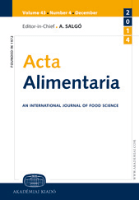
ACTA ALIMENTARIA
Connecting research and practice in food technology.ACTA ALIMENTARIA is a renowned journal in the field of food science, published by AKADEMIAI KIADO ZRT, based in Hungary. Since its inception in 1973, it has served as a vital platform for disseminating high-quality research on food chemistry, microbiology, nutrition, and technology, contributing significantly to the advancement of knowledge in the agricultural and biological sciences. Currently classified in the Q3 quartile of the 2023 Food Science category, the journal is positioned to address pressing issues pertaining to food safety, quality, and sustainability, making it an invaluable resource for researchers, professionals, and students alike. Although it does not currently offer open access, the journal maintains a strong reputation with a readership keenly interested in the latest developments in food science. With a Scopus rank placing it in the 38th percentile of its category, ACTA ALIMENTARIA continues to be a pivotal reference for those engaged in food research and innovation.